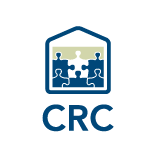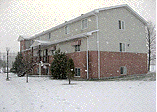Admission criteria
Admission criteria are based on the assessed availability of prospective residents to utilize and benefit from the House’s resources and services. All persons wishing to reside at our CRF must demonstrate a willingness to make appropriate changes towards social reintegration. Our services are available to the individuals who are able to meet the following criteria:
| a) |
An adult offender, serving a term of incarceration, on probation, on a conditional sentence order, on full or day parole, on a UTA, on statutory release or
as a voluntary client. |
| b) |
An individual who demonstrates a willingness to seek help, guidance and the means to better reintegrate society. |
| c) |
An individual who accepts responsibility for his criminal behaviour(s) and who has begun some soul searching. |
| d) |
An individual who requires and accepts a structured setting offered by the CRF. |
| e) |
An individual who wants to actively participate in programs. |
| f) |
An individual who is willing and able to seek and maintain employment, education or training. |
| g) |
An individual who wishes to live a pro-social lifestyle and who accepts the rules and regulations of the CRF. |
| h) |
An individual who considers his residency or stay at the CRF as a privilege. |
It is important to note that the CRF cannot accept all applications. Based not only on our Mission statement, but also due to our professionalism, we must take into account all factors and be cognizant that we are not able to solve certain problem areas.
Exclusion criteria
- Unresolved sexual problem representing an undue risk for the community.
- Important physical handicap.
- Health problems requiring specialized and / or constant intervention.
- Intellectual disability and psychiatric case.
|
Our application process usually entails four (4) steps:
| 1. |
A review of the person’s institutional progress and file. |
| 2. |
An assessment of the person’s potential motivation by conducting one or more visits. |
| 3. |
Gathering of all pertinent and relevant information (consultation with parole officers, peace officers, probation officers, collateral contacts, community interveners, etc.) |
| 4. |
A final decision to accept of deny residency. |
It should be noted that our admission process can be adjusted based on special circumstances or situations. Certain cases may be accepted by a file review without having an in house assessment. In those cases, the first week of residency will be considered an assessment phase, at which time a final decision will be rendered to accept or deny residency.
Whenever possible, a staff member will meet with the person in order to give him the opportunity to discuss his progress as well as the reasons for admittance or refusal of residency.
House rules and regulations
Download House rules and regulations.
Pdf document (228k). |













